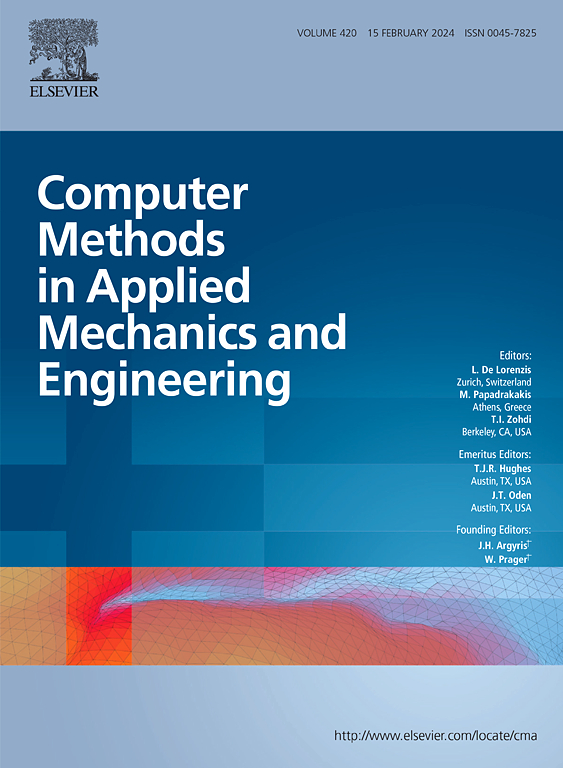基于强化学习的变分序贯优化实验设计
IF 6.9
1区 工程技术
Q1 ENGINEERING, MULTIDISCIPLINARY
Computer Methods in Applied Mechanics and Engineering
Pub Date : 2025-05-31
DOI:10.1016/j.cma.2025.118068
引用次数: 0
摘要
我们提出了变分序列优化实验设计(vsOED),这是一种在贝叶斯框架内以信息论标准优化设计有限序列实验的新方法。vsOED采用变分后验近似的单点奖励公式,为期望信息增益提供可证明的下界。数值方法是根据行为者-批评强化学习方法开发的,包括推导和估计变分和策略梯度以优化设计策略,以及使用高斯混合模型和归一化流的后验逼近。vsOED支持干扰参数、隐式似然和多个候选模型,同时支持灵活的设计标准,可以针对模型判别、参数推理、目标导向预测及其加权组合进行设计。我们在各种工程和科学应用中展示了vsOED,与现有的顺序实验设计算法相比,它具有优越的样本效率。本文章由计算机程序翻译,如有差异,请以英文原文为准。
Variational sequential optimal experimental design using reinforcement learning
We present variational sequential optimal experimental design (vsOED), a novel method for optimally designing a finite sequence of experiments within a Bayesian framework with information-theoretic criteria. vsOED employs a one-point reward formulation with variational posterior approximations, providing a provable lower bound to the expected information gain. Numerical methods are developed following an actor–critic reinforcement learning approach, including derivation and estimation of variational and policy gradients to optimize the design policy, and posterior approximation using Gaussian mixture models and normalizing flows. vsOED accommodates nuisance parameters, implicit likelihoods, and multiple candidate models, while supporting flexible design criteria that can target designs for model discrimination, parameter inference, goal-oriented prediction, and their weighted combinations. We demonstrate vsOED across various engineering and science applications, illustrating its superior sample efficiency compared to existing sequential experimental design algorithms.
求助全文
通过发布文献求助,成功后即可免费获取论文全文。
去求助
来源期刊
CiteScore
12.70
自引率
15.30%
发文量
719
审稿时长
44 days
期刊介绍:
Computer Methods in Applied Mechanics and Engineering stands as a cornerstone in the realm of computational science and engineering. With a history spanning over five decades, the journal has been a key platform for disseminating papers on advanced mathematical modeling and numerical solutions. Interdisciplinary in nature, these contributions encompass mechanics, mathematics, computer science, and various scientific disciplines. The journal welcomes a broad range of computational methods addressing the simulation, analysis, and design of complex physical problems, making it a vital resource for researchers in the field.

 求助内容:
求助内容: 应助结果提醒方式:
应助结果提醒方式:


